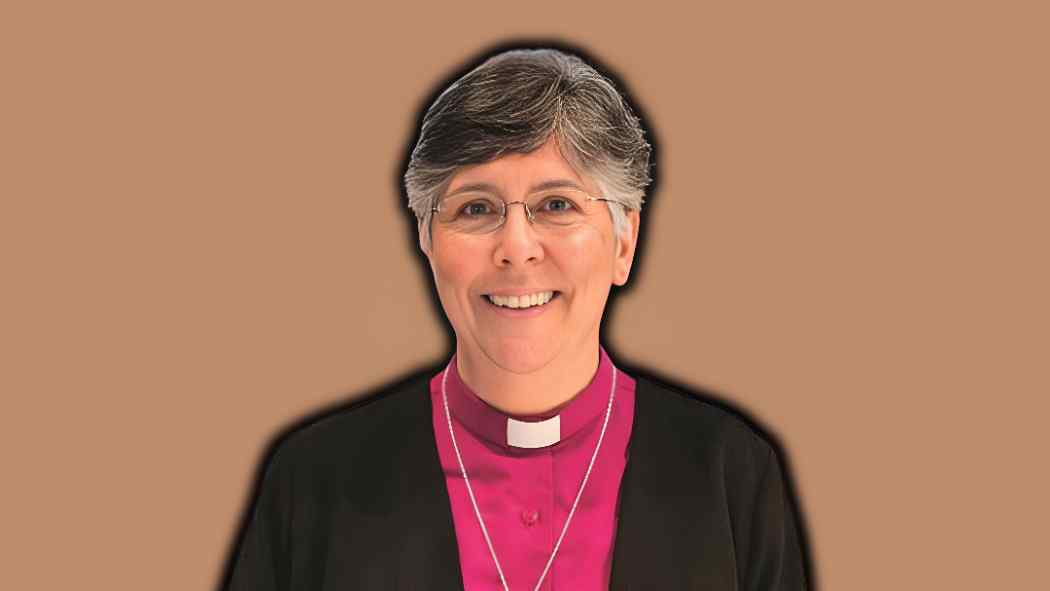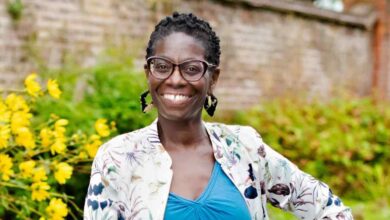Bishop Guli: A Story of Faith, Resilience, and Leadership in Modern Christianity

Bishop Guli Francis-Dehqani’s story begins far from the English cathedrals where she now serves. Born in Isfahan, Iran, in June 1966, she grew up in a family deeply rooted in faith and compassion. Her father, Hassan Dehqani-Tafti, was the Anglican Bishop of Iran, and her mother, Margaret, played an important role in church and community service. Growing up in a devout Christian household in a predominantly Muslim nation, Guli’s early experiences shaped her understanding of both courage and conviction.
Her childhood coincided with a period of great political and social upheaval in Iran. When the Iranian Revolution erupted in 1979, her family’s faith placed them in grave danger. Their home was attacked, and tragically, her older brother, Bahram, was murdered by extremists who opposed their religious stance. These painful experiences forced the family to flee their homeland and seek refuge in the United Kingdom. Guli was only thirteen years old at that time, but the trauma and lessons of displacement would later influence her ministry, empathy, and understanding of belonging.
Life in the United Kingdom and Education
Upon arriving in the UK, Guli and her family had to rebuild their lives from the ground up. Despite the challenges of starting over in a foreign land, she showed remarkable perseverance. She continued her education, studying music at the University of Nottingham. Later, her curiosity about theology and human identity drew her towards religious studies, leading her to complete a Master’s degree in Theology at the University of Bristol.
Not content to stop there, she pursued a Doctorate focusing on religious feminism and mission in Iran — a subject that blended her heritage, her gender, and her spiritual calling. This academic journey not only enriched her theological understanding but also prepared her for a ministry grounded in intellect, inclusivity, and compassion.
Ordination and Ministry
Guli’s formal journey in ministry began in the late 1990s. She was ordained as a deacon in 1998 and as a priest in 1999, serving in various parishes across the Church of England. Her early work was marked by a deep connection to pastoral care — she listened more than she spoke, served more than she commanded, and led through empathy rather than authority.
Her commitment to inclusion and understanding made her a respected figure among clergy and parishioners alike. She became known for her ability to connect faith with real-world struggles, particularly those involving cultural identity, migration, and gender equality.
Becoming the First Bishop of Loughborough
In 2017, history was made when Guli Francis-Dehqani was consecrated as the first Bishop of Loughborough in the Diocese of Leicester. This appointment was significant for several reasons. She became not only one of the few female bishops in the Church of England but also the first from a minority ethnic background. Her appointment symbolised a new chapter for the Church — one that valued diversity, experience, and empathy born of real struggle.
As Bishop of Loughborough, Guli’s ministry was focused on intercultural awareness and community cohesion. She advocated for a Church that reflected the diversity of modern Britain, encouraging open conversations about race, inclusion, and representation. Her presence inspired many young women and people of colour to see themselves as valued contributors to religious life and leadership.
Transition to the Bishopric of Chelmsford
In 2021, Bishop Guli took on a new and even greater challenge: she was appointed the Bishop of Chelmsford, one of the largest dioceses in the Church of England. This diocese spans urban and rural areas, bringing together people from many different social and economic backgrounds.
Her leadership has been defined by collaboration, transparency, and spiritual renewal. She consistently speaks about the importance of rebuilding trust between the Church and the public, encouraging clergy to focus not on power but on service. Her inclusive approach has brought fresh energy to parishes and communities across Essex and East London, where the diocese is based.
The Lead Bishop for Housing
One of the most remarkable aspects of Bishop Guli’s ministry is her dedication to housing justice. In 2021, she was appointed as the Church of England’s Lead Bishop for Housing, a role that places her at the heart of national discussions about the UK’s housing crisis. She has been vocal about the moral duty of the Church to use its land and resources to provide affordable homes for those in need.
Bishop Guli believes that having a safe place to live is not just a social issue, but a spiritual one. In her speeches, she often says that “home is a foundation of dignity.” Under her guidance, several dioceses have explored ways to turn underused church land into affordable housing projects, reflecting the Church’s commitment to serving communities in practical and compassionate ways.
Faith, Identity, and the Refugee Experience
Having once been a refugee herself, Bishop Guli understands the pain of displacement and the search for belonging. She often shares how her early experiences of exile shaped her understanding of faith. To her, Christianity is not confined to buildings or traditions; it is lived through relationships, empathy, and inclusion.
She speaks candidly about being an outsider — as a woman, as an immigrant, and as a person of colour — within an institution historically dominated by white British men. Yet, instead of resentment, she radiates grace and perseverance. Her leadership has become a beacon of hope for those who feel marginalised or unseen, proving that faith can transcend barriers of culture, gender, and background.
Her Writing and Theological Vision
Beyond her episcopal work, Bishop Guli is also a thoughtful writer and theologian. Her publications, such as Cries for a Lost Homeland, explore themes of pain, forgiveness, and spiritual endurance. In this book, she reflects on Jesus’ sayings from the cross and connects them to her own story of exile, faith, and healing. Her writing style is personal yet profound — grounded in lived experience but enriched by scholarly reflection.
Her work often calls on readers to reimagine what it means to be the Church today: not a fortress of power but a living community of service, compassion, and justice.
Advocacy for Women and Diversity
Bishop Guli’s influence extends beyond theology and housing. She is also a powerful advocate for women in leadership, especially within religious institutions. Her success as one of the early female bishops in England has challenged long-standing norms and encouraged open dialogue about gender equality in faith communities.
She often reminds others that leadership in the Church should not depend on gender, ethnicity, or background — but on one’s calling, integrity, and willingness to serve. This message continues to inspire new generations of women who feel called to ministry but doubt their place within traditional hierarchies.
Global Outreach and Peacebuilding
Bishop Guli has also been active on the international stage, engaging with Christian communities in the Middle East and beyond. She has visited Israel and Palestine, meeting with local leaders to discuss reconciliation and peacebuilding. Her background gives her a unique voice in such discussions — one that blends personal understanding of persecution with deep theological reflection.
Her emphasis on dialogue over division and peace over power reflects her lifelong commitment to bridge-building, both within and beyond the Church.
Recognition and Influence
In addition to her church leadership, Bishop Guli also serves as a member of the House of Lords, one of the few Lords Spiritual representing the Church of England. From this position, she has been able to influence debates on housing, immigration, and social justice at a national level. Her speeches often combine spiritual wisdom with social awareness, reminding the nation that moral leadership and political decisions cannot be separated from human dignity.
Her humility and authenticity have earned her widespread respect not only among Christians but also among people of other faiths and none. She represents a modern image of faith — one that is thoughtful, inclusive, and grounded in real compassion.
Personal Life and Character
Despite her high-profile role, Bishop Guli remains remarkably grounded. She is married to Canon Lee Francis-Dehqani, and together they have three children. Family remains at the heart of her identity. Those who know her describe her as warm, reflective, and quietly courageous. She often draws strength from her Persian heritage, combining the beauty of Eastern spirituality with the openness of Western theology.
Her story is a reminder that faith can flourish even in the face of loss and exile. Her journey from a persecuted child in Iran to a leading bishop in England is nothing short of extraordinary — a living testament to resilience and divine grace.
Legacy and Inspiration
Bishop Guli’s influence continues to grow, not only within the Church but also in society at large. Her life challenges assumptions about what it means to lead and to belong. She stands as a symbol of hope for immigrants, women, and minorities who believe that faith can change the world when combined with courage and integrity.
Her leadership offers a blueprint for a more inclusive and compassionate future. She envisions a Church that listens, welcomes, and serves — a Church that lives its faith not through dominance, but through love.
Conclusion
Bishop Guli Francis-Dehqani’s journey is one of transformation — from persecution to purpose, from displacement to leadership. Her faith has been tested by tragedy and strengthened by compassion. Through her work on housing justice, inclusion, and women’s empowerment, she has shown that true leadership is not about authority but about service.
She continues to inspire thousands across the world by embodying what it means to be both strong and humble, scholarly yet approachable, spiritual yet practical. In an age of division, Bishop Guli stands as a reminder that faith, when lived with sincerity and courage, can still heal and unite the human spirit.



